Mercedes-Benz is testing a solid-state battery that could unlock a range of more than 620 miles on a single charge, with the first production car to use it scheduled to hit roads before the end of the decade.
Preliminary trials are being carried out to evaluate the efficiency, durability and performance of the pack that has been jointly created by the German car maker and the US-based Factorial Energy.
Mercedes is using an EQS saloon to test the battery, which first took to the road earlier this month. It has been lightly modified to accommodate the new pack, with work mainly focused on reworking the battery housing.
Within the housing, the prototype uses a floating cell carrier, featuring pneumatic actuators developed by Mercedes-Benz’s Formula 1 engineers in Brixworth. This system manages the expansion and contraction of materials inside the battery cells during charging and discharging for improved stability and longevity.
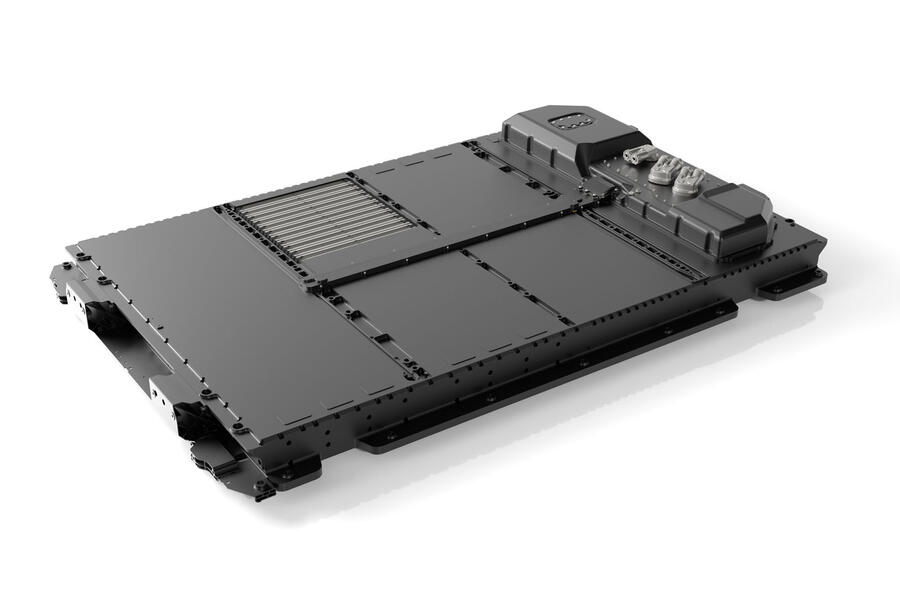
While Mercedes-Benz has yet to disclose the full technical specifications of its prototype solid-state battery, it confirms that the EQS’s existing 12-module battery compartment allows for flexible configurations and capacities. The company claims the new energy storage technology offers around a 25% increase in range compared with a lithium ion battery of equivalent size and weight.
The current EQS 450+ saloon, equipped with a 118kWh lithium ion battery, has a WLTP-certified range of 511 miles. By contrast, Mercedes-Benz expects its new solid-state unit to push the EQS prototype’s range beyond 620 miles under real-world driving conditions.
In an announcement made in June last year, Factorial Energy – which has also partnered Hyundai and Stellantis – confirmed it had supplied Mercedes-Benz with battery cells featuring an energy density of up to 391Wh/kg and a charging capacity exceeding 106Ah. The pack also holds a patented lithium-metal anode and polymer separator.
The technology being trialled in the EQS prototype marks an initial step towards a more advanced solid-state battery, internally codenamed Solstice, which Mercedes-Benz and Factorial Energy are jointly developing. The next-generation unit replaces the polymer separator with a sulphide-based solid electrolyte, targeting an energy density of 450Wh/kg and an estimated 80% range increase over today’s lithium ion batteries.
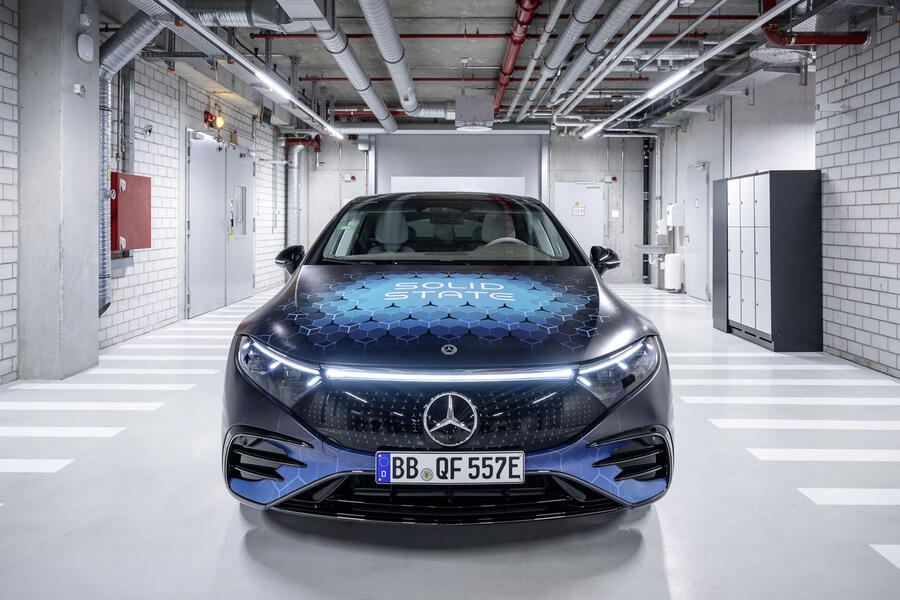

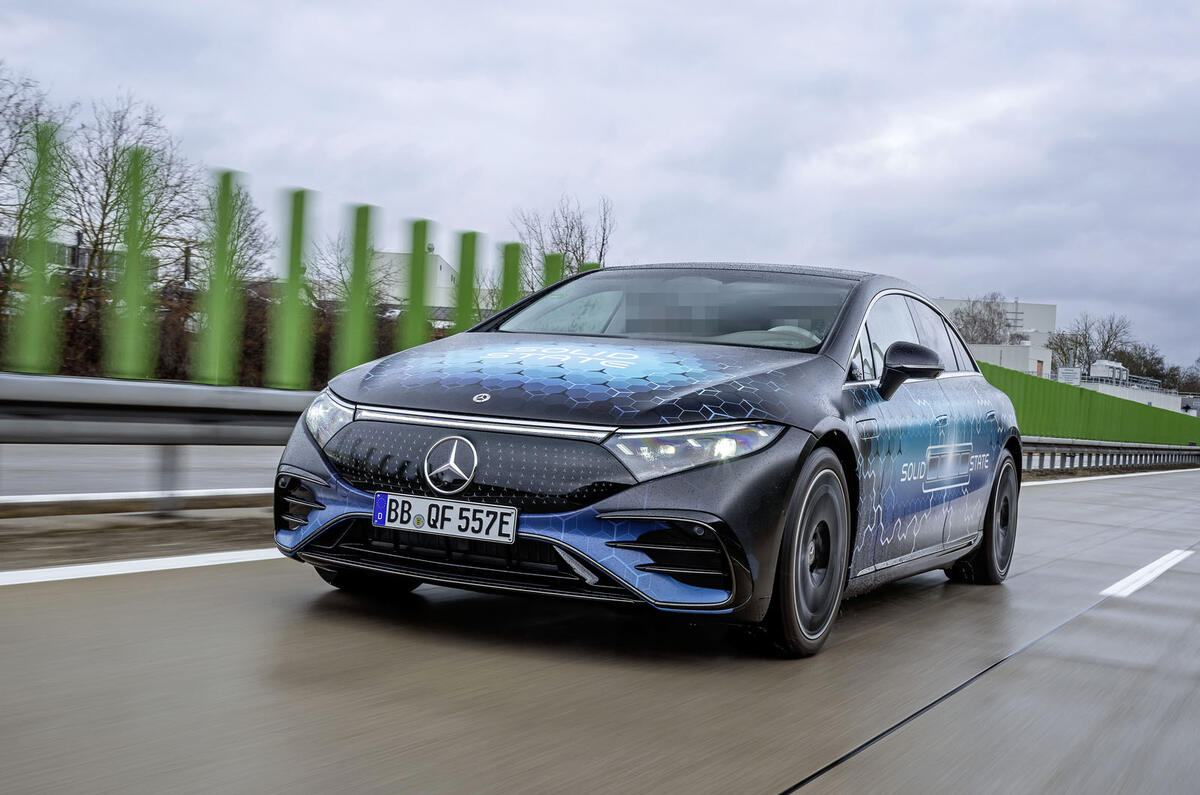
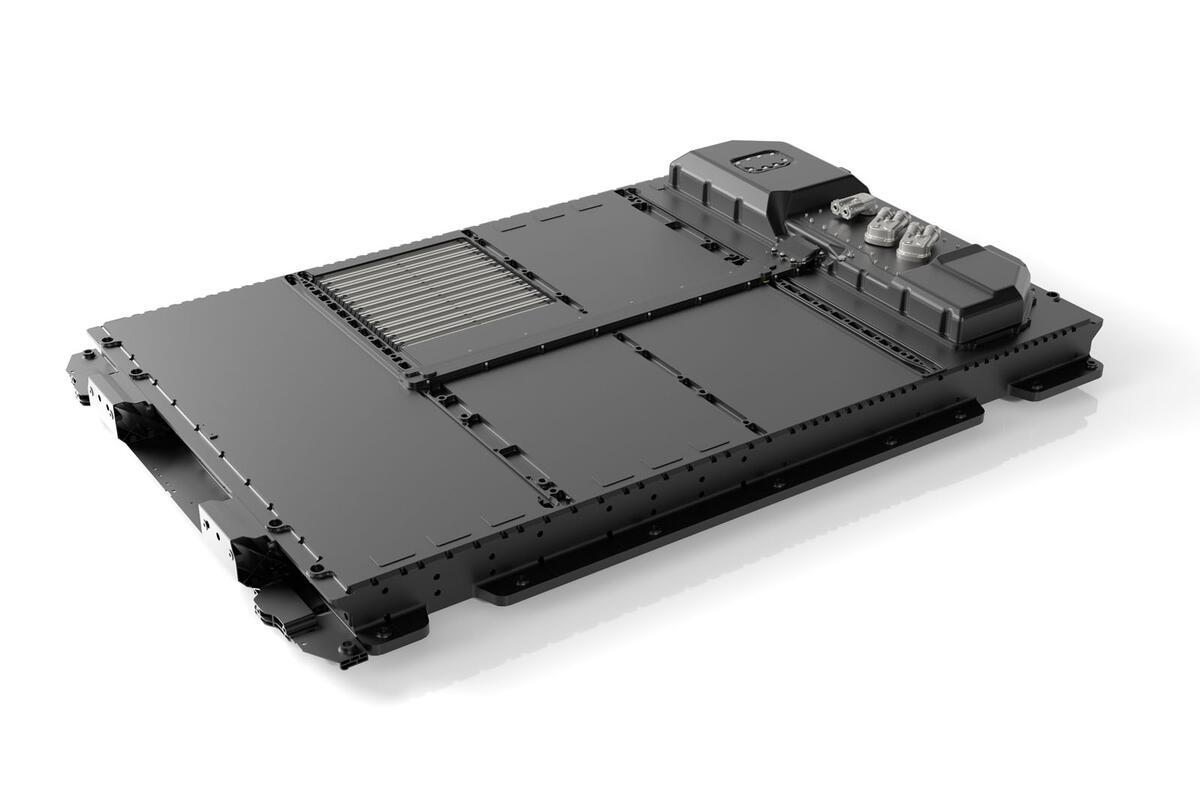
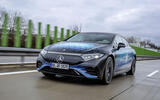
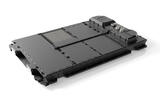


Join the debate
Add your comment
Great. Now just build a simpler, lighter more efficient vehicle with a 300 mile range that we can afford do buy. No need for a 600 mile range that most of us will ever need. Hopefully as EVs mature lighter batteries will lead to lighter more efficient vehicles with the infrasctucture to support rapid charging for the occasional longer trip.
Looking good - more range/smaller lighter batteries, faster charging...One of the important factors of solid-states they didnt mention in the article is that there is less chance of catching fire.
Theyve got no liquid electrolyte, not dendrites as in standard batteries and better heat resistance means less chance of overheating.
Looking good - more range/smaller lighter batteries, faster charging...One of the important factors of solid-states they didnt mention in the article is that there is less chance of catching fire.
Theyve got no liquid electrolyte, not dendrites as in standard batteries and better heat resistance means less chance of overheating.